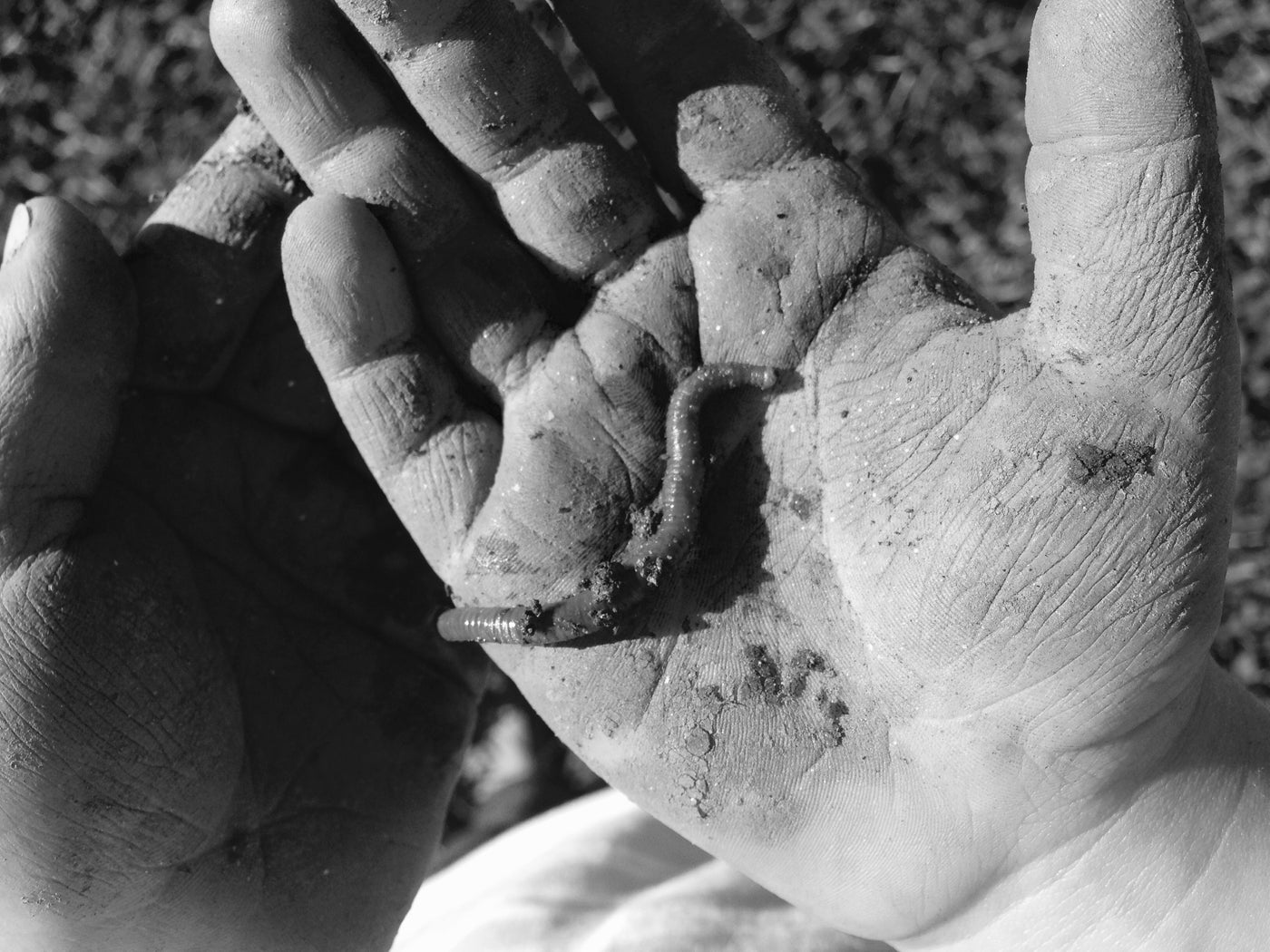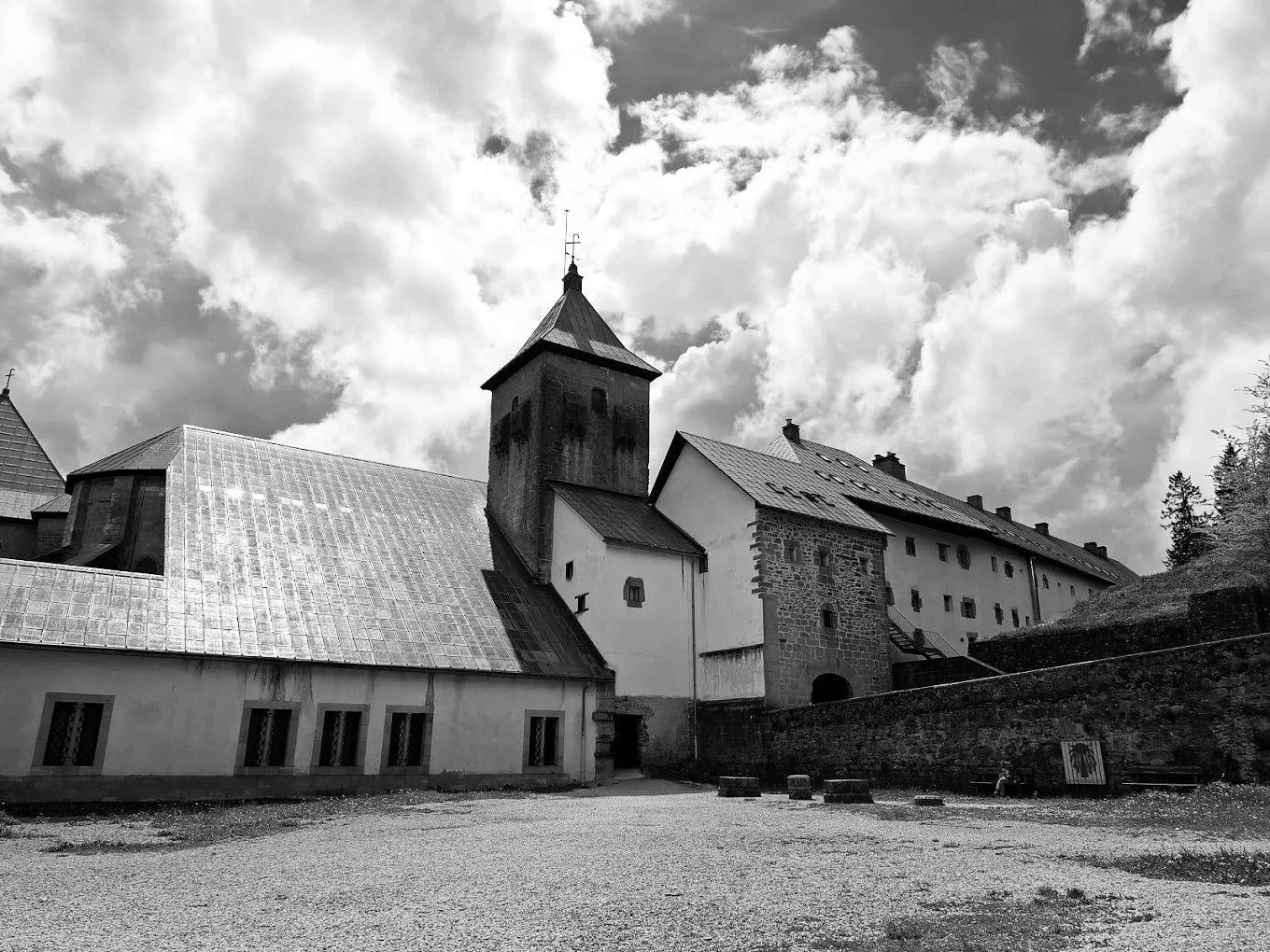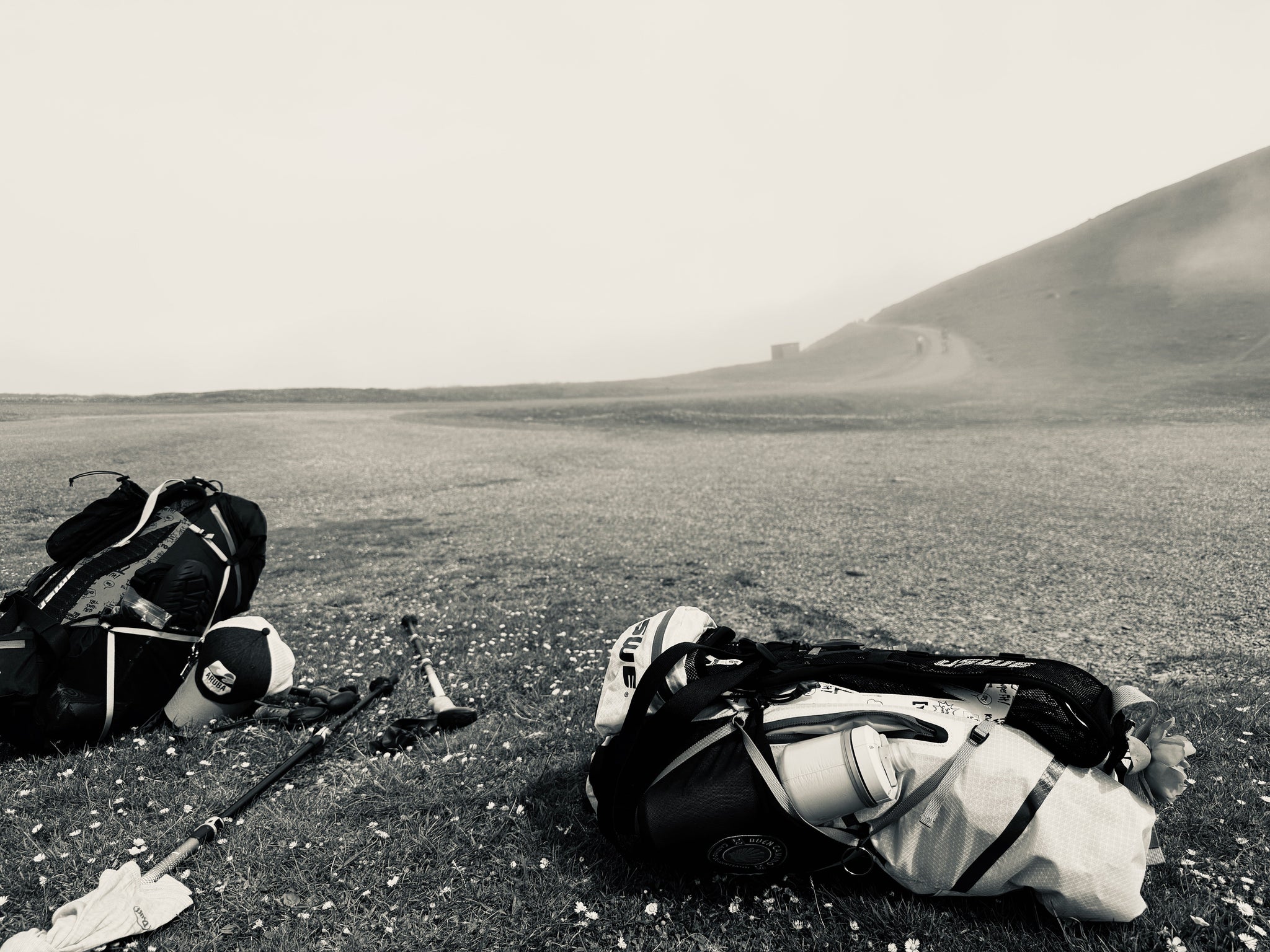
In the space where the new raised garden beds would be built, a stretch of grass required removal. In strips it was sliced and rolled up like Japanese maki, then placed off to the side. Wood and wire were combined and together with a latched door configured a new area in which to reside; a new area in which to thrive.
Come! Look at our new garden!
Absorbing their exclamation, I thought about all of the many things they might hope to show their friends throughout their lives. I remember my decades long endeavor to grow things, constructing and dismantling makeshift fencing year after year to keep the lettuce thieves away. Waiting until the very last moment to remove the metal posts, sometimes until they’ve become layered with an early snow.
Summer legs covered in mosquito bites and grass stains, the four friends linger near the sunflowers and the peas. Balancing on the edges of the beds, pulling up a potato plant much too early—a spontaneous act of enthusiasm for what is to come. Examining tiny dangling infant spuds. Later I will trim the leafy strands of green, tucking their roots back into a large pot out front, noticing regrowth within days.
A flourish of color and texture abounds in our revitalized plot of land—magnificence birthed from the smallest act of germination and erupted into rows of green.
How is it that so much can be born of such a very small thing? What if we—our thoughts, our deeds—are indeed as powerful as the tiny seeds?
In the mornings, I wake at daybreak, and almost immediately notice a jagged edge around the top of my heart. In one corner, reaching up toward my throat, the fleshy organ seems to burn with expectancy. A call that might come. The pulsing loss of what has been.
Splashing cold water on my face I begin shaking off the sensation, recognizing its merely feeble hold on me. Downstairs I open the heavy font door to the screen and prop it open with the meditating cat statue.
The grass is wet with thick dew, rapidly evaporating with the impact of morning sun. Recently cut, it sticks to my bare feet as I walk toward the garden. Nothing needs to be done—no weeding or watering—but still I go and look, admiring the new container for our growth. The upstairs bedrooms are heating up inside as children slumber still, their heads dampening beneath heavy blankets, shades drawn. The blissful sounds of birds—a natural world long since awakened—intermingles with the absence of household movement, creating the sense that I, there in my bed clothes, might go undetected as one of them.
Glancing over at where the groundhogs live beneath the shed, I notice the two wide entryways they’ve created—like ample dirt slides. I imagine the home they’ve fashioned in the cool dark place underneath the small building. Are there individual rooms? Corridors? A pantry? There is clearly a back door—dug ambitiously between two large shrubs on the other side of the storage. A mound of dirt is piled up, demonstrating the audacity of their digging and perceived ownership of what we think of as ours.
They seem to monitor my coming and going, often running from a wide-open space back to their hole when they hear me stepping outside through the front door. It doesn’t matter how silently I arrive.
Is it odd that I talk to them?
Once, I came out the front door and two of them had been in the midst of rising out of the double passageways to their den at the exact same time. Freezing, they appeared like twin statues side by side, paws curled up by their faces. I looked and looked at the amusing scene hardly believing it was possible for them to be so alive and so adorable.
We’re not here, we’re not here,they seemed to squeak beneath their breath.
With my gentlest voice, I announced my peaceful intent and walked slowly toward them. They remained perfectly still until I passed what seemed an invisible boundary and then they retracted simultaneously, swiftly disappearing back into their den and into the darkness beneath the surface. Later, after leaving a watermelon rind as an offering, I felt vindicated to see it had been accepted, nibbled and moved deeper into their lair.
--
When it came time to haul away the sod and other materials utilized for the garden transformation, I requested the rolls of grass be left and stored off to the side of the new beds. I thought I might lay them out in patchy areas of the yard, like transplanted hair. With too much time passing between inspiration and action, they grew heavy with continued growth and the absorption of rainwater. I decided instead of moving them I should break them up for deposit into the compost.
Jonah was sitting propped on the edge of one of the new garden beds, pulling weeds from around an explosion of spinach, when I made an unexpected discovery. Unfurling one of the reams of grass, I peered closely at the soil noticing an active and highly populated worm commune had been developed; evidence of how alive the sections of earth remained despite their separation from the whole. Within the abstracted soil were a multitude of thick and wiggly worms. They seemed to be woven through the dirt like loops in a weave pattern, maximizing the soil content in their patch of grass. This was garden gold.
Jonah rushed to see, and we began gathering up the worms in an impromptu relocation venture. He gathered up a bunch of the wigglers, and entered back in through the gate, depositing them in the place where he’d been working. After I’d dislodged some of the others, I called him over and across the fence I poured the contents of my soiled hands into his and he turned back to the garden where he submerged them throughout the beds.
We moved back and forth in this way until all of the plants (tomatoes, kale, peppers, carrots, peas, potatoes, and way in back, the squash) had received a new resident. By then, Jonah expressed his sense of fulfillment as my worm handler and went back to weeding. I broke up the rest of the grassy mounds, depositing them in the compost bin, knowing the worms would be immersed in a feast of scraps that could be transformed at their very long leisure.
--
What are the gifts of an ordinary day? Yours and mine may not look the same.
The preservation of the sacred in the commonplace. Witnessing the earth’s creatures and its children in equal measure absorbed into the shelter of a gentle sway. An endless host of quotidian gestures that mostly go—if not unseen—then unnamed.
Count me among those who are summoned.
And yet, for this, there is nowhere I must go, nothing I must do.Right here I shall massage a tranquil heart, beating out the pulse of waiting, acting out a marathon of benevolence in the small circle of soil and seed surrounding me.
Love is a verb, they say.
Reminding about the clothes strewn across the bedroom floor, instructions about better placement in the hamper down the hall. Steadfast preparations for perspectives needed long beyond this place in time. Balancing the filling up of minds with the imperative for freedom of thought and deed.
If you don’t fill up their heads with something, someone else will.
Tending and mending the most-precious inhabitants of my heart’s heart. Accounting for the most miniscule of bruises so they might remain both open and strong, unbound in the face of judgement and tender in the face of pain.
This is the legacy of presence, the passing off of a voluminous baton of noticing, of listening at a level beyond that which can be told, or taught, or narrated.
Subscribe to my mailing list!
Leave a comment (all fields required)
Comments will be approved before showing up.


